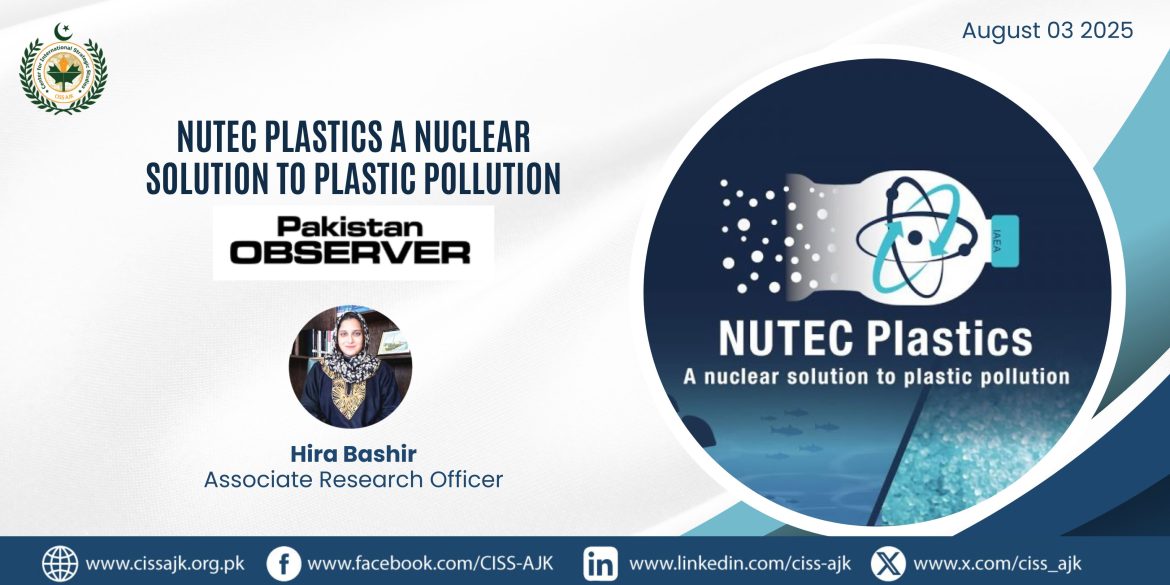PLASTIC pollution is one of the most significant environmental challenges of our time.
As plastics continue to fill our oceans and land the urgency to find effective solutions becomes very critical. While we associate nuclear technology with energy production or weaponry, an innovative application of it is emerging in controlling plastic pollution. Could nuclear technology provide an unexpected solution to this global problem?
The IAEA’s NUTEC Plastics program offers a promising approach to dealing with plastic waste. This program was launched in 2020. It uses radiation to break down plastics more precisely than traditional recycling methods. This process works by targeting the molecular bonds in plastic, causing them to break apart. What makes this method so revolutionary is its ability to handle plastics that are difficult or impossible to recycle through conventional means. As a result, this technology presents a faster, more efficient alternative to the labour-intensive recycling processes currently in use worldwide.
However, the application of nuclear technology to manage plastic waste raises concerns about safety. The idea of using radiation to break down plastic waste may seem risky to many, particularly with regards to the environmental impact. Ensuring that these technologies are safe for both the environment and human health is important. This means establishing strict safety regulations. The key challenge lies in maximizing the benefits of nuclear technology while minimizing any risks.
Countries like Japan and South Korea have already demonstrated the potential of nuclear technology in addressing plastic pollution. They have incorporated radiation-based techniques into their waste management strategies successfully. By using gamma radiation to break down plastics, they are managing pollution more effectively while reducing reliance on landfills and open burning.
Pakistan is struggling with rising plastic waste, with an estimated 250 million tons of garbage primarily consisting of plastic bags, PET bottles and food scraps. Given its limited recycling infrastructure, nuclear technology presents a promising opportunity to improve the country’s waste management system. With the mounting pressures of plastic pollution, Pakistan could benefit from adopting these radiation-based techniques to manage its plastic waste more efficiently. The integration of nuclear waste management into Pakistan’s recycling efforts could help the country move towards a more sustainable future by reducing the environmental impact of plastic.
Global efforts to combat plastic pollution are also gaining momentum, with the United Nations calling for stronger action on the issue. Nuclear technology can complement these international initiatives by providing a scalable solution for recycling and waste management. However, to fully realize its potential, governments and scientists must collaborate to ensure the safe and effective application of this technology. Public support and engagement are essential to ensure that the technology is applied transparently and responsibly.
Nuclear technology offers a promising and innovative solution to the global plastic pollution crisis. By using radiation to break down plastics more efficiently, we could reduce waste and help create a cleaner, more sustainable world. However, the safe use of this technology requires careful regulation, continuous improvement and global collaboration. As the world grapples with the growing problem of plastic pollution, nuclear technology might just be the key to creating a cleaner, healthier planet.
—The writer is an Associate Research Officer at the Centre for International Strategic Studies, Azad Jammu & Kashmir.
(hirakhan5090@gmail.com)



